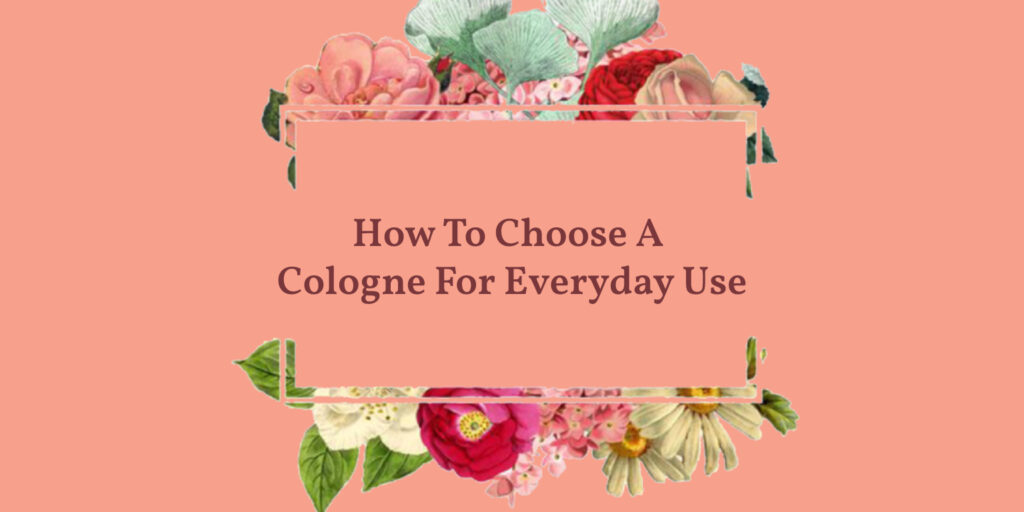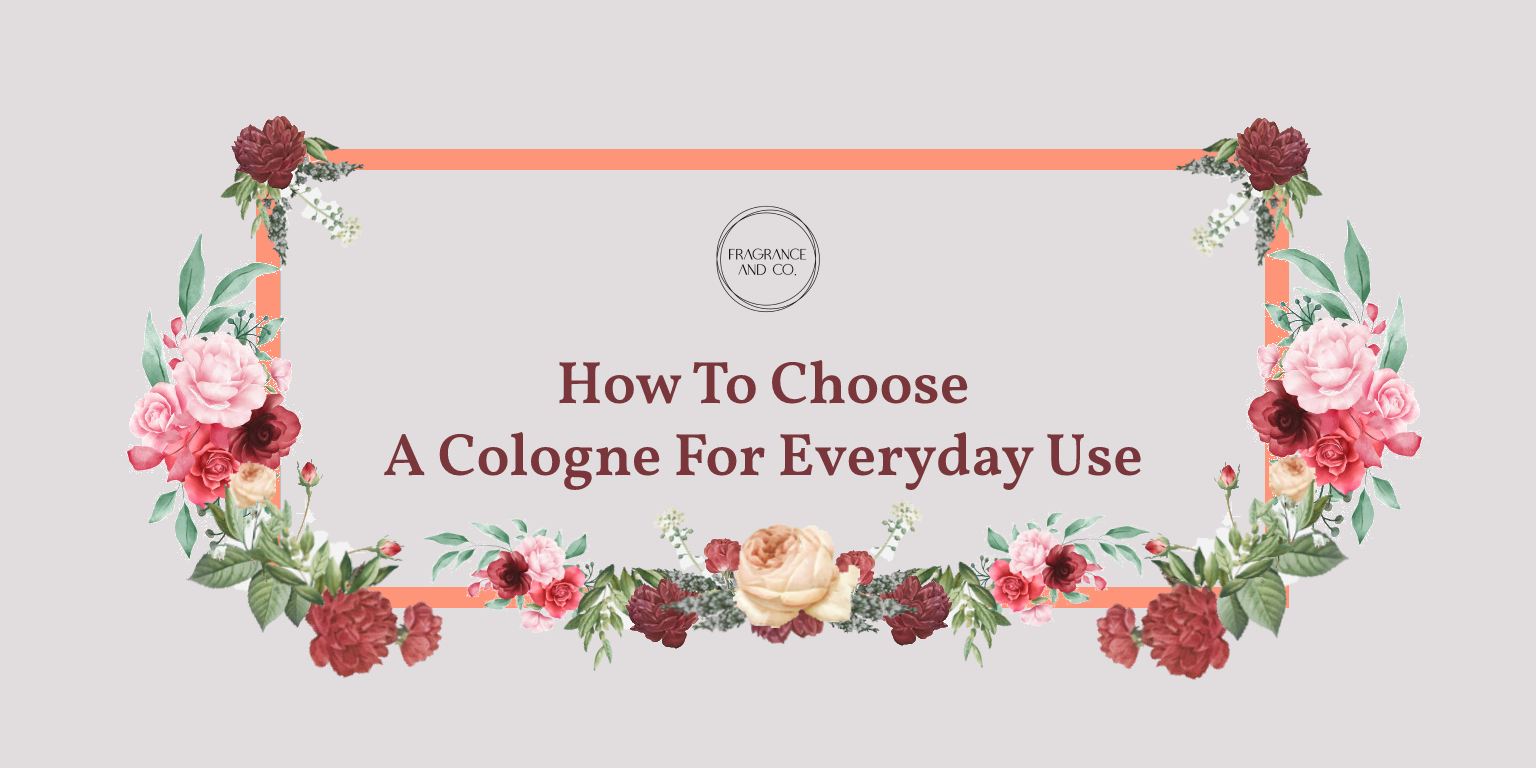It would be best if you remembered how to pick a decent cologne when looking amazing. To do this, begin by spraying colognes from a distance onto sample cards and determining which scents you initially like best. Bear in mind that fresh and light fragrances are ideal for summer, while more decadent aromas with hints of wood or spice are suitable for winter. Then, make sure that the scent fits your skin and remains in place for a long time by applying a sample on your wrist and leaving it all day, frequently smelling to see how it blends and grows with your natural oils. Doing it can help you gain unprecedented insight into what it’s like to wear a cologne daily before you buy it.
At this point, it is also essential to consider how the scent can break down over time. The colognes, made up of top notes, mid-notes, and base notes, each of which dries at varying times, allowing the scent to alter. The top notes last between 15 to 120 minutes, the mid-notes will last anywhere from 30 minutes to five hours, and the base notes, which account for how long the scent lasts, hang on for two to eight hours or longer.

How To Choose A Cologne For Everyday Use?
To choose the right smelling cologne for you, also make sure always to pick your scent. Don’t let anyone else like it for you, and don’t just buy it because you want it from a friend. Since colognes smell different on different individuals, you must want to test the scent before purchasing.
If you’re a fragrance fanatic or new to scents, choosing a fragrance that you enjoy can be an overwhelming experience. When you reach the fragrance counter, the only detail you can get about any of the scents in front of you is how the bottle feels, which, of course, doesn’t tell you much. You’re often left to sniff a few choices out of hundreds of available bottles with the aid of an overbearing salesperson, who typically doesn’t help at all.
A perfume that you enjoy will become a part of you, an extension of yourself. So how are you going to choose one?
If you’ve got a few minutes to study before you hit the shop, or you’re trying to find the right scent on the fly, here are a few simple tips from fragrance experts to help you find a scent that you’ll enjoy for years.
Do your research.
Often, the best place to start is right under the nose. For lack of a better word. Think of daily life. What scents do you love?
If you’re brand new to fragrances, think about the other distinctive aromas that you enjoy in your life, particularly those in products that you use on your body. The coconut shampoo in your gym? Wash your new and green body? The gentle and mineral scent of your washing clothes? Even the nicotine you smoke in the cigarette? It will all serve as a perfect starting point for discovering the dream perfume. Check for fragrances with notes like those you enjoy in your other products.
If you’ve found a perfume or note that you’d like to use as your starting points, such as pine or leather, there are a few online tools that will show you the fragrances that contain that particular note. Tools like this will be useful as you learn what notes you’re attracted to and locate other scents that have them.
Dream of mood and lifestyle, and what kind of scent families lend themselves to it. It’s a part of common sense and a part of instinct. A sexy musk may be more suited to a night out than an office setting with lighter flowers or citrus, feeling more welcome in a formal environment than woody or spicy one. You should also weigh intensity—do you want someone to note the scent you wear or is it all for you?
Once you’ve discovered a family of notes that you need, use it as a reference. If you’re attracted to vanilla, spend some time learning fragrances that feature other gourmet tones, such as sugar, sweets, or chocolate, until you jump to something entirely new, like fragrances that are rich in citrus or aquatic notes.
Check scents in the best way.
The most critical part of discovering your new favorite scent is, of course, trying it out. Spray it at a pulse point where the skin usually is wet, like your wrist or elbow, so that the scent warms up and exposes itself over time.
Apply the perfumes on your face first, if possible! Most people buy the first experience of ascent—within seconds! It’s a shame since the perfume’s top notes practically rub off in 15-30 minutes. The fragrance’s essence reveals itself only when it intermingles with the chemistry of the wearer, and it takes time.
As to why scents often smell entirely different on two different people, fragrances are susceptible to light and humidity and your own body’s chemistry, diet, and hormone levels. Even the time of day plays with how the perfume “wears,” or how it smells on you, how strong it is, and how long it lasts.
Your atmosphere also plays a part in the scent of your skin. At the very least, in two distinct settings, you can wear the smell at least twice. Because your surroundings, lifestyle, and even the weather can affect your fragrance’s scent, it’s essential to try your bouquet a few times.
Please don’t rub it. Rubbing the smell produces heat that breaks up the compounds quicker. You can unintentionally hurry up the smell journey and lose out on the exquisite dance of the real revelation.
If several visits to the mall to try new fragrances sounds overwhelming, bear in mind that department stores have tiny sample bottles behind the counters ready to drive you home—all you need to do is inquire. If you want a beauty shop like Sephora, their employees will be able to make a sample bottle of fragrances on their shelf so that you can wear them for a few days to know how they function in different settings, allowing you time to live with the smell.
Discover something that you enjoy.
The chemical composition of your preferred perfume affects the longevity of your fragrance. A major misunderstanding is that all EDPs (Eau de Parfums) or perfumes last a very long time and are perfect projectors. If the dosage of oil determines the perfume intensity and silage (how long the scent lingers in the air), the fragrance formula’s ingredients also matter more.
E.g., natural citrus ingredients appear to be more effervescent and shorter than cocoa, patchouli, and other woods.
Choose between real vs. synthetic components of the perfume influence and the duration of wear, smell of the scent itself, and how it interacts with the body. Natural isn’t necessarily more sustainable or significant for you. Authentic, natural perfumes are very costly. No two rose yields will smell precisely the same (like wine) due to environmental conditions.
In comparison, natural perfumes have a shorter wearing time and shelf life. All-natural fragrances can cause more allergic reactions than synthetic fragrances, so be extra vigilant about home-grown products in this group. Often do a skin test before buying!
Finding a fragrance that you love can be difficult, but if you know what you’re looking for and how to look for it, the process can be fun, particularly when you’re armed with the knowledge of scents to improve your everyday life. A few online tools to learn which notes you like, how to submit and measure, and decide your next fragrance are more straightforward than you thought.

